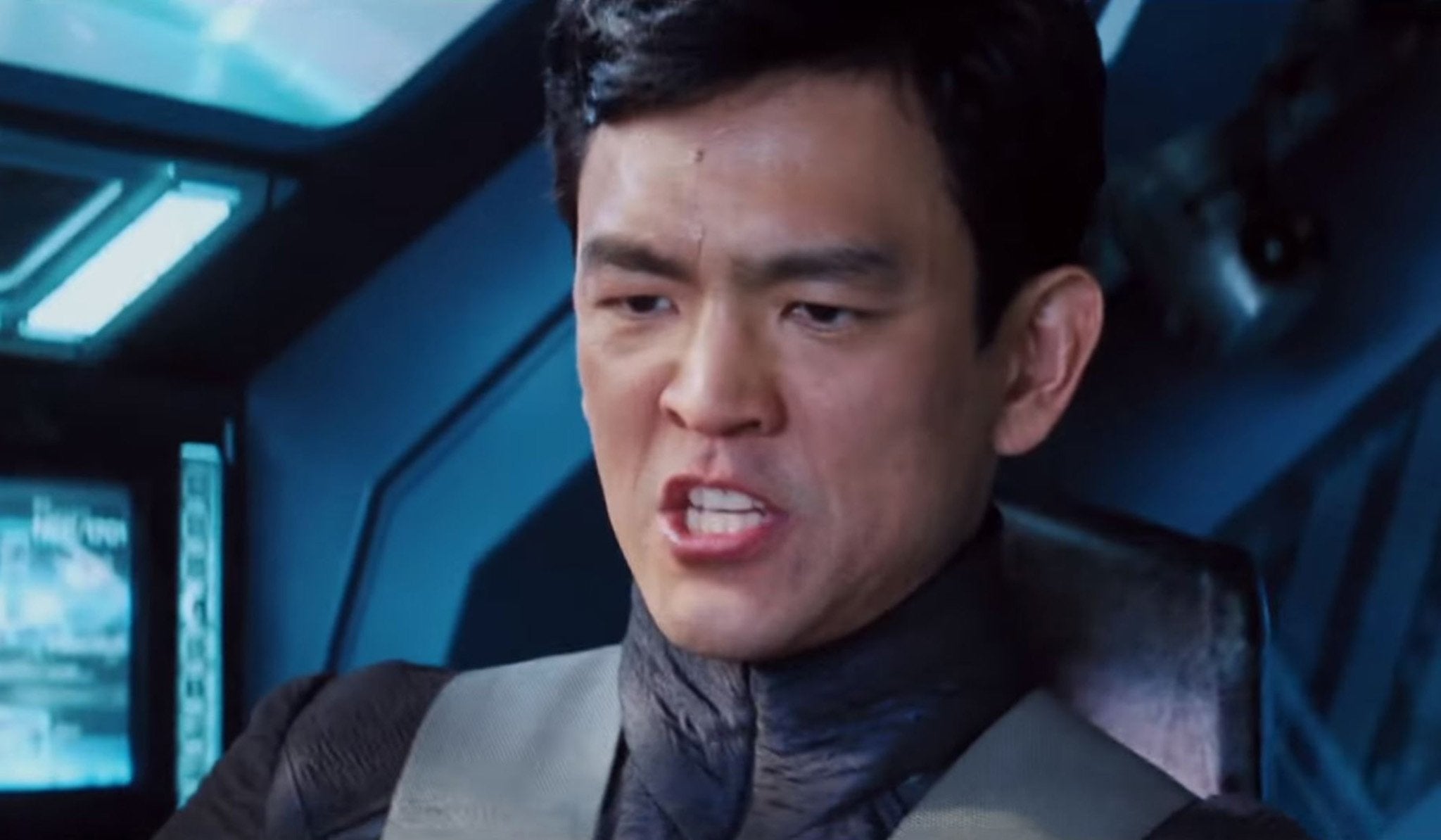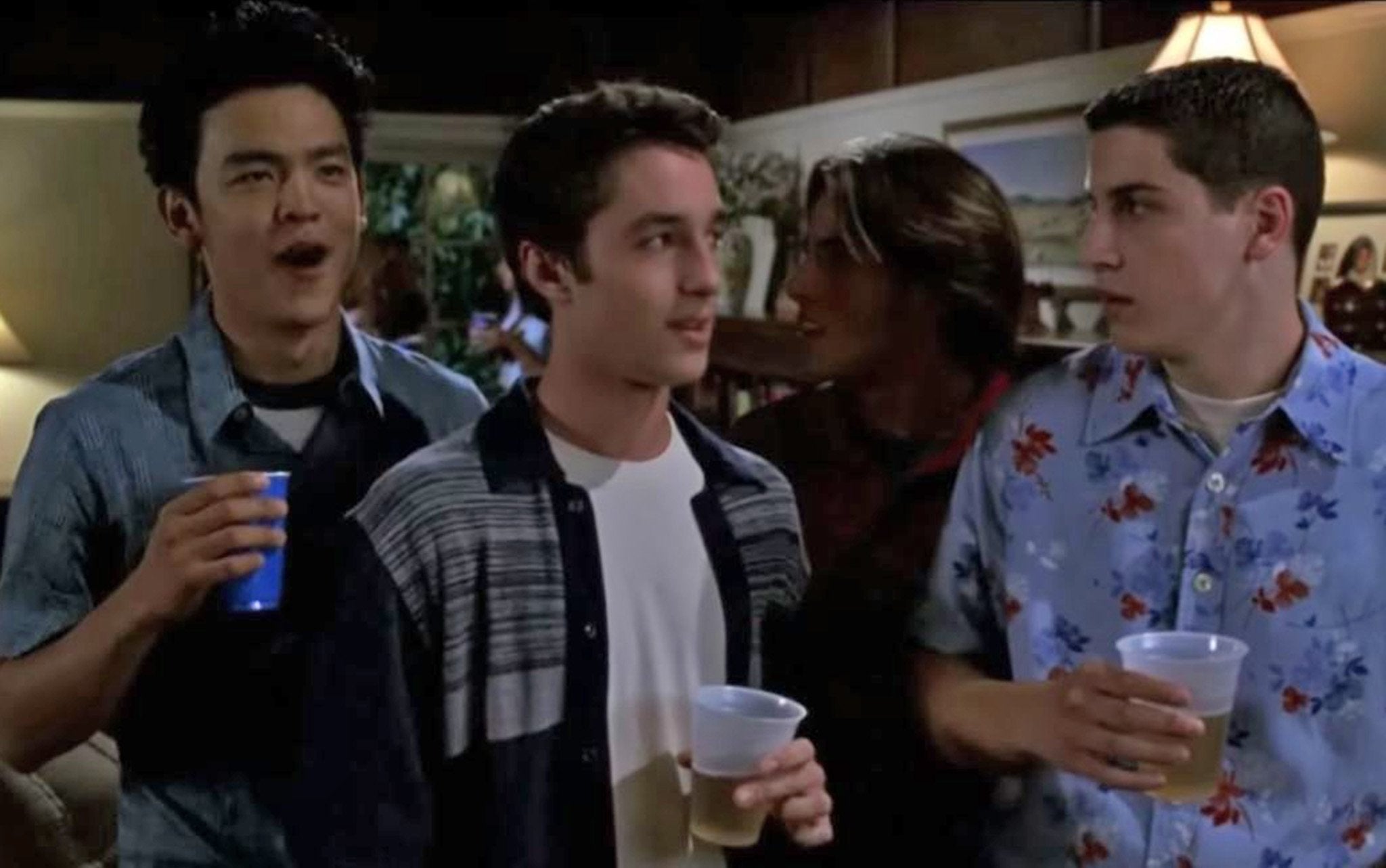John Cho won’t blame you if you have reservations about his latest film Searching. Though its narrative is traditional thriller fare, with the actor playing a father on the trail of his missing daughter, it’s a story told in a bracingly unusual manner – entirely within the confines of a computer screen. At first, the concept seemed implausible for Cho.
“I was, like, ‘Can this be a movie?” he explains. “Can this possibly be a movie?’ And, on that suspicion, I turned it down initially.” Thankfully, he changed his mind – and has now become one of the genre’s greatest cheerleaders.
While Cho may not be a household name, you’ve almost certainly seen him in something. Perhaps you know him as Harold from 2004 stoner comedy Harold & Kumar Go to White Castle. Or Sulu in the recent Star Trek films. As the horndog who popularised the term ”Milf“ in 1999's American Pie. Or as Steve in Justin Lin's excellent Better Luck Tomorrow.
Perhaps you recognise him from his countless TV roles, including How I Met Your Mother, FlashForward and Difficult People. Searching, however, is his biggest role yet and represents a watershed moment in cinema: he’s become the first Asian-American to play the lead in a mainstream Hollywood thriller.

The film itself also sits on a frontier. Yes, the internet may have been around for a while now, but Hollywood’s lagged badly behind when it comes to visualising the role it plays in our lives. Indeed, filmmakers are still reliant on what Cho calls, “the over-the-shoulder of the typist shot”: a close-up of an actor assertively hitting keys, saying out loud every word written. “As drama, it just doesn’t work,” he adds. Searching is here to fix that dramatic rut.
Not that it’s the first of its kind, with the “computer screen” genre already fairly well-known from 2014’s Unfriend and its recent sequel, Unfriended: Dark Web. Scroll back further and there’s the popular 2013 short film Noah, which recounts a teenage breakup as spread over Skype, Facebook, and Chatroulette. Yet it’s hard to think of the format’s use here as much more than a clever gimmick; it was down to Searching, and its director Aneesh Chaganty, to fulfil its potential to tell sincere, emotionally layered stories.
“We now as a species, we’re experiencing all these emotions that we used to experience, albeit exchanged face-to-face, that are now happening inside the computer,” Cho says, as he argues that Searching is boundary-breaking in Chaganty’s ability to communicate that shift on screen. “What he did was go inside the computer so that he could then reproject it onto the big screen. And make those interactions inside the computer feel as big as they feel to us internally. That’s what I loved about it.”

However, Cho first received what was described to him as “scriptment” – “something that, to me, was between script and prose, like novel-writing”, a way to communicate the intricacies of Searching’s onscreen action. Though invested in the story, he turned the project down simply on that basis that, “I just didn’t want to do it on a computer screen.” It took a second meeting, in which Chaganty diligently walked Cho through his plans for the film, including the use of two cameras (one on his face, one looking at the screen), for Cho to finally be won over.
The next obstacle was his own performance. By his own admission, the 46-year-old actor sits within a “middle generation” of technological acceptance, especially when it comes to existing naturally in front of a webcam. He’s not quite the Luddite his parents are (”They don’t even remember to put the camera in a position so that we can see them. They’re so unaccustomed to the idea of being filmed that they kind of treat Facetime as television“). But neither is it “second nature” to him, as it is to his co-star Michelle La, who plays his daughter Margot. “I’m very uncomfortable in real life in front of a webcam,” he says. “So, I sort of had to trick myself. I was playing it like everyone was in the room with me. But, that’s not quite the reality.”
Perhaps it’s an offshoot of his “middle-generation” mentality, but Cho’s larger perceptions of technology are refreshingly balanced – he’s not quite embittered himself yet into thinking the world is one massive Black Mirror episode. One would assume Searching, and its various shocking revelations, would come as a stern warning about our online behaviour. For Cho? He actually picked up a few handy tips, having never realised that laptops can be used to send text messages (he’d been laboriously reaching for his phone each time, but no more).
He’s appreciative of how his parents can now connect to relatives and friends in South Korea, “sharing grandkid pictures over the ocean”, while also remaining wary of the internet’s failure to “judge facts, or these fake news stories and conspiracy theories that are going around on the internet”. He adds: “Technology is neutral, but that neutrality itself is problematic.”
Wherever technology may take us in the future, however, Cho sees Chaganty’s work as a vital step in how those changes will be reflected on screen. “I told Aneesh, as soon I saw the movie for the first time, that I was blown away, because he added to the vocabulary of cinema,” he says. “And it’s just so hard to do in 2018. What he’s done is show people that this possible and, when that does happen, I think it becomes a part of the toolbox of filmmaking.”
'Searching' is in cinemas now







